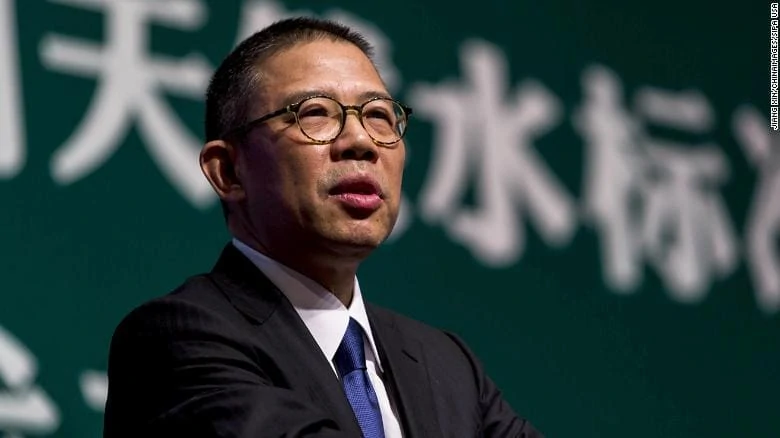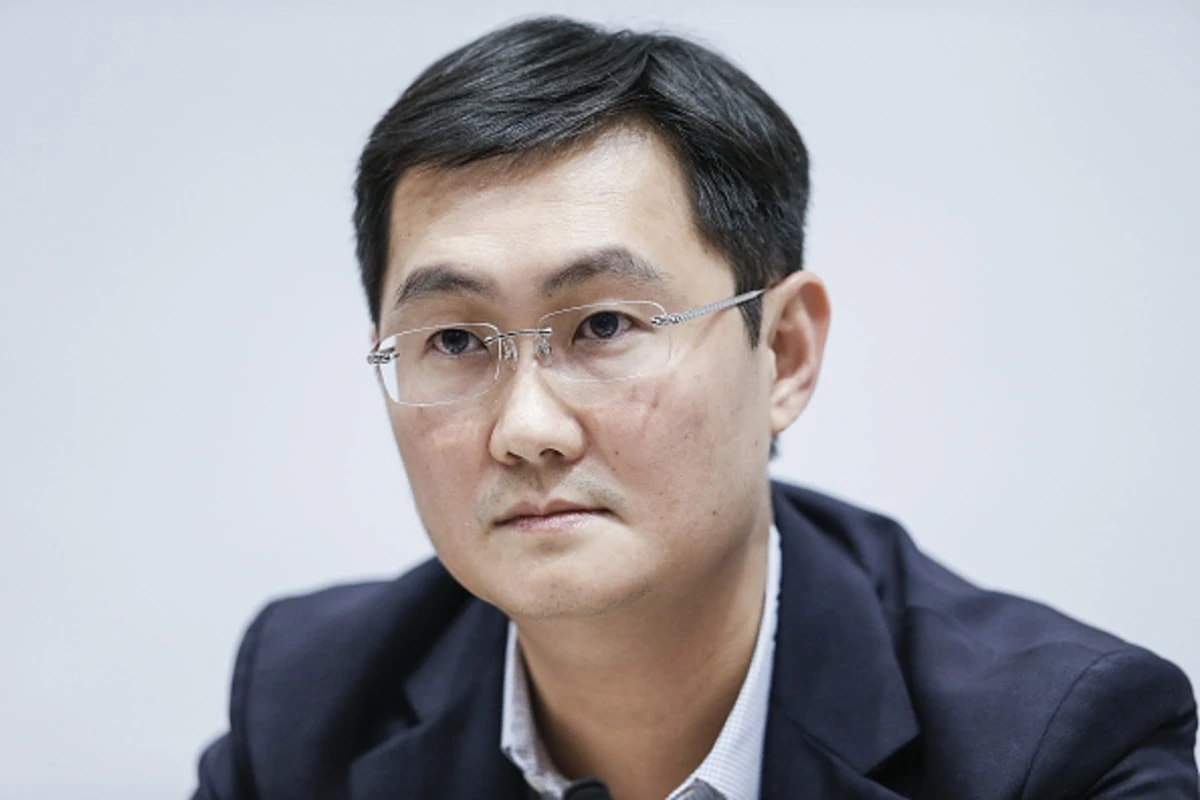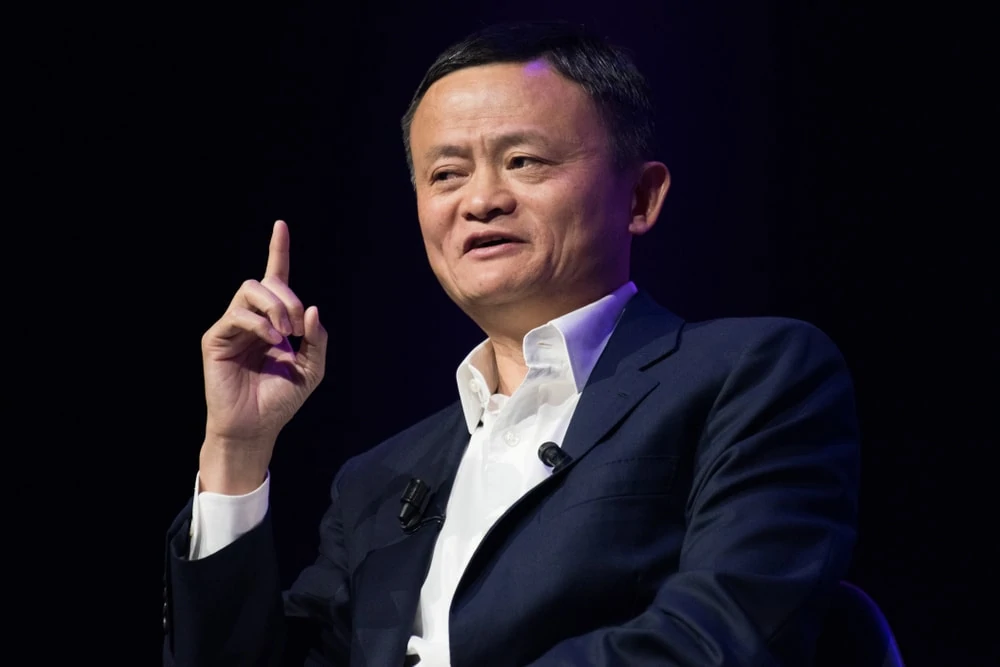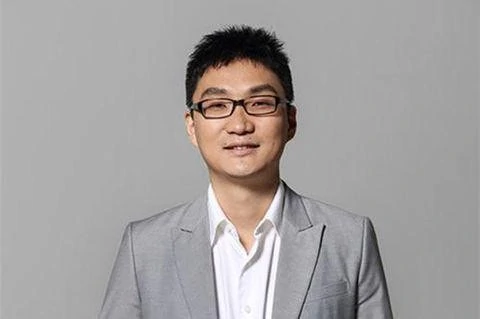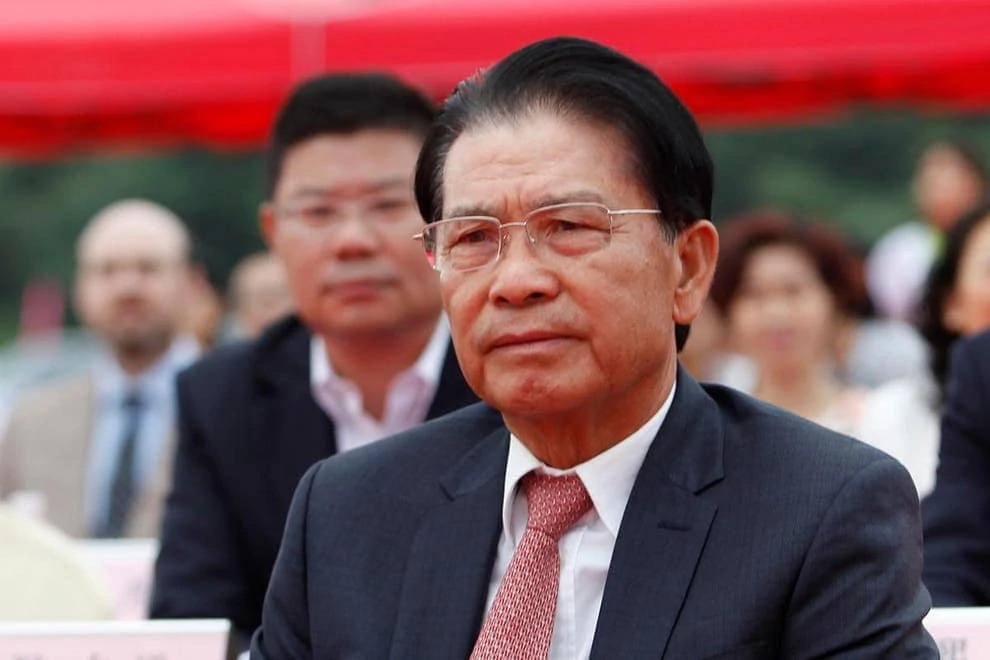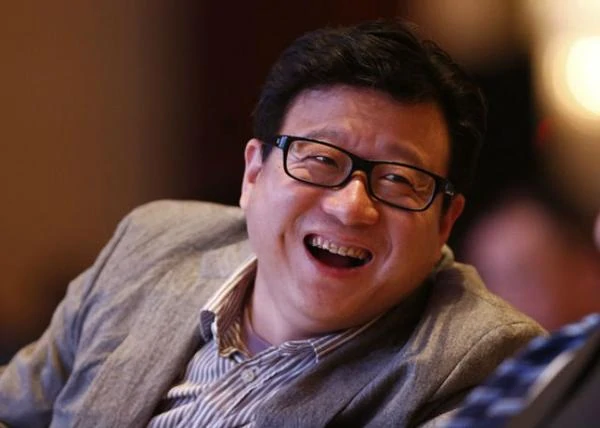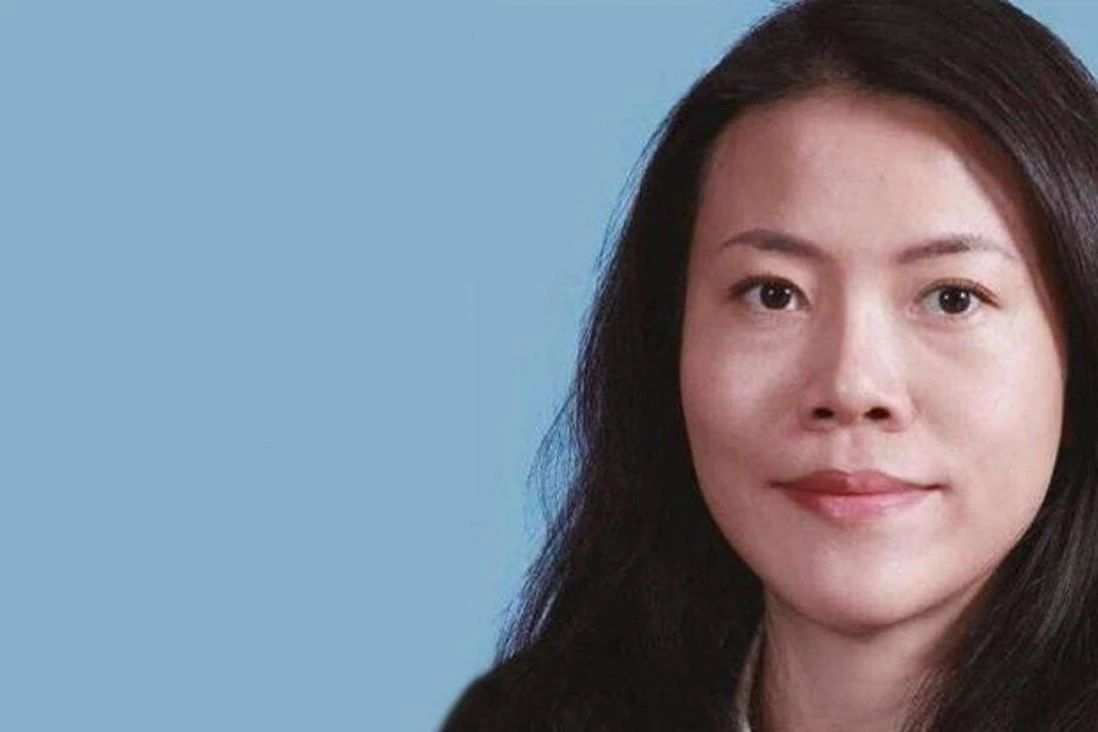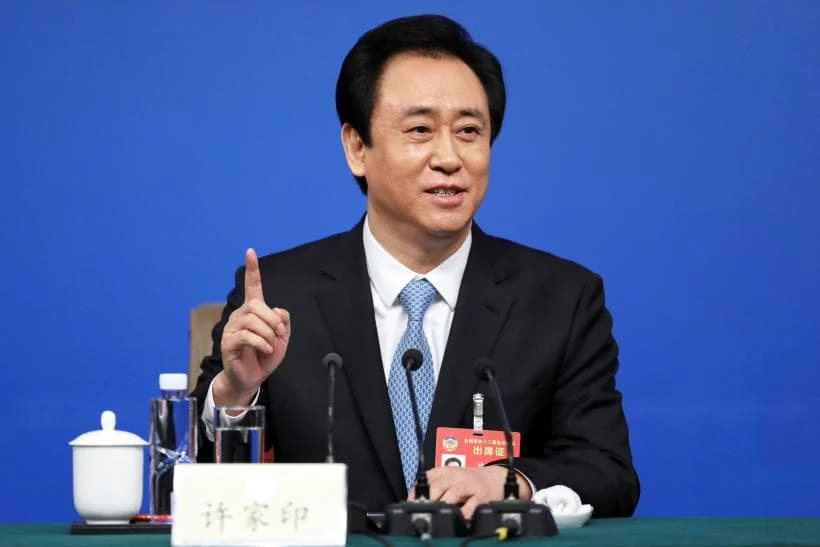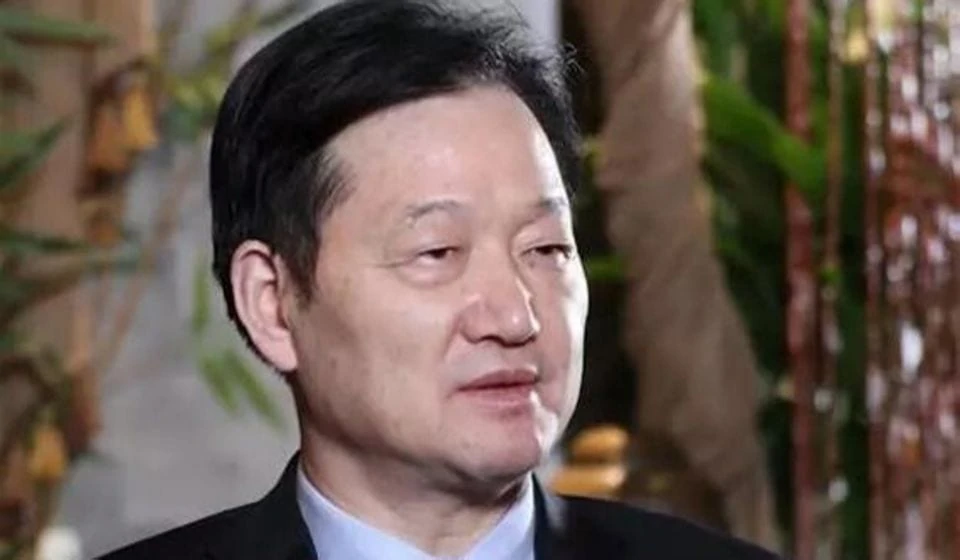FROM JACK MA TO MA HUATENG, WHEN IT COMES TO GROWTH, CHINA’S RICHEST HAVE NEVER HAD IT SO GOOD. SINCE 2003, THE COUNTRY HAS GONE FROM HAVING NO US-DOLLAR BILLIONAIRES, TO NEARLY 1,000 TODAY. MANY STARTED WITH NOTHING, BATTLING THEIR WAY TO THE TOP OF THE COUNTRY’S ECONOMIC BOOM. SO WHO ARE THEY? Alex Colville finds out
The year 2016 saw a significant milestone: it was when the number of Chinese US-dollar billionaires overtook the number of America billionaires. Since then, the numbers have swelled. According to the Hurun Report’s 2020 China Rich List, there was more wealth created last year than the past three combined. ‘The world has never seen this much wealth created in just one year,’ says Rupert Hoogewerf, Chairman and Chief Researcher of the Hurun Report. Those at the top of the list come from a wide range of industries – from real estate and fintech to beverages and (perhaps oddly), pork farming.
Many on the list have risen on a scale unseen anywhere else in the world: Xu Jiayin started by mucking out university latrines and ended as the chairman of a US$500 billion company. Wang Wei began China’s largest delivery service as a smuggler in a mini-van.
Xu Jiayin started by mucking out university latrines and Wang Wei began as a smuggler in a mini-van.
A wealth assessment based on stock market value makes the top ten an ever-changing list, the Forbes Real Time Billionaires list tracking the many different competitors as they rapidly rise and fall. The Hurun Report’s annual China Rich List (published October 2020) offers a more long-term view, providing the names for our list of China’s richest in 2020, but as of January 2021, real-time positions had already shifted dramatically. Hurun estimates are taken from September 2020, Forbes from mid-January 2021.
1. Zhong Shanshan
Company: Nongfu Spring; YST
Location: Hangzhou
Industry: Beverages and vaccines
Forbes Estimated Net Worth: US$91.1 billion
Hurun Estimated Net Worth: US$53.7 billion
Age: 66
Zhong Shanshan is a bottled water magnate, and now the richest man in Asia. China is the world’s biggest market for bottled water, already forecast to be worth US$58 billion in 2020 and expected to grow at a compound annual growth of 4.9%, according to Statista.
Zhong has rocketed to the top this year thanks to the IPO on the Hong Kong stock exchange of his brand Nongfu Spring, whose red-capped bottles of mineral water are as ubiquitous in Chinese shops as Coca-Cola. Nongfu saw its value rise by US$47 billion through its IPO, and Zhong owns an 84.4% stake in the company. Bottled water is considered by investors as a safe bet in the current uncertain economic climate. He is also the owner of the vaccination company Beijing Wantai Biological Pharmacy, which listed in April last year on the Shanghai stock exchange, currently with a market capitalisation of US$17 billion. At the time of writing, he has overtaken Jack Ma and Ma Huateng (who topped Hurun’s China Rich List 2020) to become Asia’s richest man and in the Top 10 of the Forbes Rich List.
After dropping out of elementary school during the Cultural Revolution, he started out doing odd jobs as a mushroom farmer, builder and peddler of erectile dysfunction pills. Zhong launched his Nongfu Spring brand back in 1996, edging ahead of rivals by switching from purified water to mineral water, arguing it was more beneficial to health; that Nongfu Spring tasted sweet was only further proof that it was good for you. The company has since branched out into numerous beverages, including orange juice and coffee, and currently has a market share of over 26%. Zhong is a notable recluse, refusing to speak to the press and telling China Daily in 2016 “I don’t like making friends with businesspeople”. It’s not for nothing that he’s been nicknamed the “Lone Wolf”.
2. Ma Huateng
Company: Tencent Holdings
Location: Shenzhen
Industry: Fintech and E-commerce
Forbes Estimated Net Worth: US$66 billion
Hurun Estimated Net Worth: US$57.4 billion
Age: 49
‘Pony’ Ma is reserved about his private life, but is known to be interested in astronomy and art collecting, and started dating his future wife after meeting her on his own instant messaging platform, QQ. He is China’s second-richest man thanks to a 9% stake in Tencent Holdings, this year seeing a wealth increase of 50% according to Hurun, owing to a good performance by Tencent Games, further expansion of WeChat, and good returns on investments (especially Tesla and Meituan).
This Ma has been sure to keep the state on side. He served in the 12th National People’s Congress, and in a discussion on censorship at a Singapore tech conference, Ma is quoted as saying “Lots of people think they can speak out and that they can be irresponsible. I think that’s wrong[…] We are a great supporter of the government in terms of information security. We try to have a better management and control of the Internet.” In 2016, Ma pledged that 2% of annual net profits would be given to charity – in April of that year he pledged 100 million shares in Tencent to a personal charity fund.
3. Jack Ma
Company: AliBaba Group
Location: Hangzhou
Industry: Fintech and eCommerce
Forbes Estimated Net Worth: US$62 billion
Hurun Estimated Net Worth: US$58.8 billion
Age: 56
It’s a funny thing. I’m running one of the biggest e-commerce companies in China, maybe in the world, but I know nothing about computers. All I know about computers is how to send and receive emails and browse
Although the two Mas are rivals in the world of fintech and e-commerce, they have very different personalities. The former CEO of Alibaba relishes the spotlight (occasionally performing at music events in loud outfits), preferring to see himself as a straight-talking businessman rather than a tech expert. It’s been a stratospheric rise for Ma, from humble beginnings as a 12-year old boy offering visiting Americans tours in exchange for English lessons. 2020 had been a good year, with the pandemic leading to sales boosts on Taobao, and Alibaba listing on the Hong Kong stock exchange, making his the first internet company to have dual listing on the Hong Kong and New York stock exchanges. But his wings were clipped after he criticised China’s banking regulations, accusing Chinese banks of having a ‘pawn shop’ mentality. That lead to the postponement of the Ant IPO on the Shanghai and Hong Kong stock exchanges.
It was tipped to be the world’s largest IPO to date (valued at US$200 billion), with numerous state institutions heavily investing in the venture, but the suspension, coupled with new micro-lending rules, means Ant is unlikely to have retained its pre-suspension valuation. Ma dropped out of public view in October last year, only reappearing in mid-January 2021 in an online video for the Jack Ma Rural Teachers Award. For Hoogewerf, the crackdown by Chinese regulators is typical of the anti-monopoly moves being made by governments across the globe, adding, “If you give them another five to ten years, they’ll be really too big for anyone to go after.” If Ma honours his pre-suspension pledge to donate 600 million shares of Ant to charity upon listing, he will have donated over US$10 billion throughout the course of his career to date.
4. Huang Zheng
Company: Pinduoduo
Location: Shanghai
Industry: e-commerce
Forbes Estimated Net Worth: US$60.2 billion
Hurun Estimated Net Worth: US$32.4 billion
Age: 40
The founder and (until July 2020) CEO of Pinduoduo, Huang Zheng (or ‘Colin’ Huang) is the youngest self-made billionaire in the Hurun top 10. Although Huang is responsible for a raft of apps (like Vova, an important European e-commerce app) his wealth is largely thanks to Pinduoduo. This app raised US$1.6 billion on a US IPO in July 2018. Zheng turned down safe job offers from IBM and Microsoft in 2004, preferring instead to work for the then more obscure but intriguing Google. He left Google in 2007 and became his own boss, establishing several companies before landing on Pinduoduo. The app combines social media, gaming and e-commerce, offering price discounts if users can encourage their friends to buy in bulk. Huang compares it to a fusion of Costco and Disneyland, merging shopping with fun.
Astonishingly, despite being only five years old, the app attracted over 643 million monthly active users in the second quarter of 2020 (Alibaba recorded 874 million monthly active mobile users in the same period) meaning it is now one of the fastest-growing businesses in the world, a serious contender to market giants Alibaba and JD.com, “an extraordinary achievement” according to Hoogewerf. Pinduoduo targets lower-income individuals in lower-tier Chinese cities and has come under criticism for selling poor quality goods and overworking staff. Due to the pandemic, Pinduoduo had a good year, with Huang’s wealth the fastest growing of all Chinese billionaires during the Chinese lockdown in March and April. Overall his wealth rose by 63% in 2020 – indeed, if he hadn’t given away 14% of Pinduoduo’s shares to his team and to charity, he would have become China’s richest man.
5. He Xiangjian
Company: Midea Group
Location: Foshan
Industry: Electrical domestic appliances
Forbes Estimated Net Worth: US$41 billion
Hurun Estimated Net Worth: US$33.1 billion
Age: 78
Midea Group describes itself as ‘the world’s largest manufacturer of consumer appliances’, with assets totalling US$40 billion – and China’s largest air-conditioner exporter. The company originated in a shack in Beijiao, Guangdong province (now absorbed by the city of Foshan), where local villagers would make plastics in secret. The demand for consumer products during China’s Reform and Opening Up period caused He to transfer to electrical appliances, sales booming immediately.
At peak production, a fifth of all home appliances in China were being made in Beijiao , and Midea became China’s first small-town enterprise to be listed on a major stock exchange. He has since bought up the German robotics company KUKA (the world’s largest manufacturer of automobile-building robots). He has now resigned from leading the company, and is currently just the controlling shareholder of the group. He is the first 100 billion yuan enterprise to not hand over chairmanship to family, rather giving it to his second-in-command, Fang Hongbo. Although family-run businesses are still a popular model in China, larger Chinese firms like Alibaba have begun to separate management and ownership. “As these companies get bigger and bigger,” says Hoogewerf, “these splits between management and shareholders have to come about and I think He Xiangjian has done a better job at it than most.”
6. Wang Wei
Company: SF Holding
Location: Shenzhen
Industry: Logistics
Forbes Estimated Net Worth: US$38.5 billion
Hurun Estimated Net Worth: US$35.3 billion
Age: 50
I know the taste of being poor, of being discriminated against by people for being poor”
Today, China’s largest delivery service by market revenue is SF Express, generating US$17 billion in 2019. Thanks to the isolation brought about by the pandemic, the company had a windfall year in 2020, effectively doubling Wang’s wealth. This isn’t the first time Wang has done well out of a pandemic: the SARS crisis of 2003 saw Wang create a deal with the airline Yangtze River Express, allowing his company to be the first private express company in China to charter cargo planes. Wang started out illegally smuggling parcels in and out of affluent Hong Kong in a minivan. “We would be fined if caught by postal officers, so we had to handle packages sneakily”, he is quoted as saying. He’s also been looking into the future of logistics: in 2018 his company obtained the country’s first licenses for drone deliveries.
7. Ding Lei
Company: NetEase
Location: Hangzhou
Industry: Online Gaming
Forbes Estimated Net Worth: U$34.4 billion
Hurun Estimated Net Worth: US$32.4 billion
Age: 49
One of China’s internet trailblazers, Ding Lei is the CEO of NetEase. At university, he would reportedly regularly question teachers, and taught himself to code in his spare time. By the time he graduated, unlike most of his peers, he had the skills needed to create software himself. He quit cushy and stable jobs in state telecom companies to create internet start-ups, much to the chagrin of his family. He became China’s richest man in 2003 thanks partly to his free email system (handy during the SARS epidemic), but mainly due to the popularity of his online gaming services (especially the ever-popular Fantasy Westward Journey). Gaming now accounts for nearly three-quarters of NetEase revenue, and although they have long been overtaken by the likes of WeChat, Ding Lei still managed to increase his wealth by US$14 billion this year, by branching into mobile games and pork markets. In 2015, NetEase expanded into western markets, opening a US headquarters near San Francisco.
8. Yang Huiyan
Company: Country Garden Holdings
Location: Foshan
Industry: Real Estate
Forbes Estimated Net Worth: US$33.1 billion
Hurun Estimated Net Worth: US$33.1 billion
Age: 39
With total revenues of US$27 billion in 2020, Country Garden Holdings was ranked 147th on the Fortune Global 500 and is one of China’s largest real estate developers. Its majority shareholder is Yang Huiyan, groomed from an early age by her self-made father Yang Guoqiang to be his successor, transferring 70% of the company shares to her before its IPO in 2007. At 25, Yang became a billionaire, and now acts as co-chairman of the board’s governance committee. Friends claim that she is fairly shy, and had wanted to be a teacher growing up – which probably explains the fact that she is also chairwoman of Bright Scholar Education Holdings, the largest operator of bilingual K-12 schools in China.
9. Xu Jiayin
Company: Evergrande Group
Location: Shenzhen
Industry: Real Estate
Forbes Estimated Net Worth: US$30.2 billion (from Feb 2020)
Hurun Estimated Net Worth: US$34.6 billion
Age: 62
Xu Jiayin, Chairman of Evergrande Group, was China’s richest person back in 2017, but his wealth has dropped by over US$20 billion in the past three years. Evergrande is one of the world’s largest property developers (with 800 projects in 280 cities) and the world’s most valuable (with assets totalling US$500 billion as of June 2020). But it is also the world’s most debt-ridden, currently owing US$88 billion to Chinese banks according to Bloomberg, and US$35 billion from international bondholders. Defaulting on these debts would be highly damaging to both domestic and global markets, but Evergrande managed to reassure markets in September 2020 by reaching a deal with investors to retain their shares and avoid Evergrande making repayments – it has not been specified when repayments have been delayed until.
Xu “is probably the most skilful I know at walking the tightrope,” says Hoogewerf. “He’s always been very aggressive in terms of expanding sales and also managing his debt…to be able to balance those two is incredible. It might be difficult, but there’s a very good chance he’ll pull through.”
After all, it was still a relatively good year for Xu Jiayin, whose IPO of Evergrande was approved in September, valued at US$1.8 billion. Besides, Xu is no stranger to hardship: his mother died when he was very small and he grew up in poverty in rural Henan, claiming to have survived university on mouldy sweet potatoes and happily clearing drainage ditches from the school latrines. He is now the owner of prominent sports clubs worth millions, and even pledged an investment of US$6 billion in electric cars in 2019. Furthermore, Xu Jiayin is a member of the Standing Committee of the Chinese People’s Political Consultative Conference, a body of experts and individuals who advise government policy. In 2018 he advocated private real estate enterprise deploy their resources towards reducing poverty alleviation, saying the Group had built 50 villages in Guizhou over two years alone to aid social housing. In the late 2010s he gave very generously to charity, topping the Forbes China Philanthropy List for three years in a row.
10. Qin Yinglin & Qian Ying
Company: Muyuan Foods
Location: Nanyang
Industry: Pork Farming
Forbes Estimated Net Worth: US$25 billion
Hurun Estimated Net Worth: US$29.4 billion
Age: 55 and 54
“I never believed that a pig farmer could break into to the Top 10,” says Hoogewerf. “That was something that completely went against everything I knew about big tech and everything else in the year 2020.” The husband and wife team are the joint-owners, founders and directors (with husband Qin Yinglin as Chairman) of Muyuan Foods. The Shenzhen-listed company is the largest pork breeding company in the world’s largest pork market. The couple benefitted from an outbreak of African swine-flu in China in 2019, sending pork prices up by 140% that year. Such unprecedented profits – up over 1,000% in 2019 – means the couple have seen their wealth grow six-fold. From a litter of 22 piglets in 1992, the company sold 10 million animals last year and aims to produce 25–30 million for slaughter by the end of 2021. The company has recently expanded operations on a giant scale, opening what is billed as the largest hog farm in the world, leasing enough land to hold 80 million pigs.


